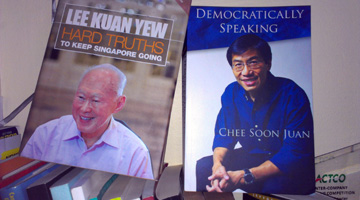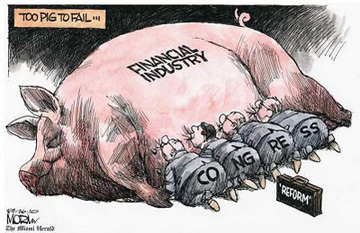|
| |
|
| |
|
|







|
|
TCHS 4O 2000 [4o's nonsense] alvinny [2] - csq - edchong jenming - joseph - law meepok - mingqi - pea pengkian [2] - qwergopot - woof xinghao - zhengyu HCJC 01S60 [understated sixzero] andy - edwin - jack jiaqi - peter - rex serena SAF 21SA khenghui - jiaming - jinrui [2] ritchie - vicknesh - zhenhao Others Lwei [2] - shaowei - website links - Alien Loves Predator BloggerSG Cute Overload! Cyanide and Happiness Daily Bunny Hamleto Hattrick Magic: The Gathering The Onion The Order of the Stick Perry Bible Fellowship PvP Online Soccernet Sluggy Freelance The Students' Sketchpad Talk Rock Talking Cock.com Tom the Dancing Bug Wikipedia Wulffmorgenthaler |
|
bert's blog v1.21 Powered by glolg Programmed with Perl 5.6.1 on Apache/1.3.27 (Red Hat Linux) best viewed at 1024 x 768 resolution on Internet Explorer 6.0+ or Mozilla Firefox 1.5+ entry views: 2233 today's page views: 159 (5 mobile) all-time page views: 3400878 most viewed entry: 18739 views most commented entry: 14 comments number of entries: 1228 page created Sun Jul 13, 2025 05:42:05 |
|
- tagcloud - academics [70] art [8] changelog [49] current events [36] cute stuff [12] gaming [11] music [8] outings [16] philosophy [10] poetry [4] programming [15] rants [5] reviews [8] sport [37] travel [19] work [3] miscellaneous [75] |
|
- category tags - academics art changelog current events cute stuff gaming miscellaneous music outings philosophy poetry programming rants reviews sport travel work tags in total: 386 |

| ||
|
- Daniel Goh, Punggol East By-Election Speech Delivery One (a patriotic indirect contribution to our esteemed leaders, and heartily endorsed by three former Prime Ministers, no less!) arrived on Friday:  Initially, I placed them side-by-side on the politics shelf, but a worrying sizzling sound was heard within minutes As I also received urgent correspondence from a Dartmouth scholar, inquiring as to the possible purpose - votes? - of "plain cheap economic growth by fast expansion", as Herr Ahm suggested in the previous post, it seems an ideal opportunity to feed two hamsters with one sunflower seed. Since the book is freely available locally, it should be admissible to summarize it for the edification of my readers. The nearly four-hundred page long text is divided into four main parts, on "The political economy", "In the opposition", "The rule of law" and "Democratically speaking". But before beginning, I have to mention some fascinating reactions to its arrival - my uncle gently advised me (and my cousin) not to post anything remotely political online, while my grandma, after asking who it was on the cover, referred to him as "Singapore's most hated man" (an incredible title, given that it had to be won against the likes of serial murderers and child rapists), and urged me not to bring it to campus since "NUS is built by the PAP" (!), and also not to comment on anything connected to the Opposition online. Well, they are of course several years too late on that point, but their opinions reveal just how chillingly pervasive this kia cheng hu attitude is among the older set. Now, I don't consider myself particularly brave at all, but this degree of institutionalised balllessness is another thing altogether - I mean, when even mainland Chinese journalists can protest, we're veering dangerously into having only the likes of North Korea as our contemporaries. Here, I will confidently state that for all the fears that the authorities will try to "moderate social space involving social media", they simply cannot do it (same with the possibly-not-holding-the-by-election bluff); Yale and other tie-ups aside, any attempt to mess with the Internet, above their cursory porn bans, would immediately sever the last pretenses of engagement and turn off a huge chunk of swing voters. Indeed, it could be ventured that this boji kiasi mentality bred into local society has had its part to do with the dearth of innovation here: "...Singaporeans have become rather un-entrepreneurial as one would expect from years of authoritarian control; creativity was all but choked lifeless. Add to this the fact that our talented and skilled have been emigrating to other countries by the thousands and you have the perfect recipe for economic decline..." (pg. 67) They came for him one winter's night/ Arrested, he was bound/ They said there'd been a robbery/ His pistol had been found/ ...Over the hills and far away/ For ten long years he'll count the days... [Original] The Untold Stories As it would perhaps be unfair to expect the audience here to sit through a chapter-by-chapter account, as well as to the author for giving away all the content, I will skip through the back three Parts, and only cover the bits I found most telling. Chapter 9 gives a Chee's-eye view of the events leading to Mr. Chiam's departure from the SDP, for which he has been much-maligned. This is his side of the happenings:
But the last straw, to him, was that the political science textbook Politics and Governance in Singapore continues to refer to him as having ousted Mr. Chiam, despite his many attempts to contact the writer. True? I'm not sure, and the whole saga should perhaps be put aside by now, but still a valuable insight into one of the biggest bugbears to dog Opposition politics here. The third Part starts with the matter of improbable polling booth physics, but one suspects his proudest moment comes in Chapter 12, where he got to cross-examine our former Minister Mentor, and his son, in court, beginning with the immortal line, "Mr. Lee, we get to meet at last". Interestingly, while Dr. Chee describes Father as sometimes "lost for words", he recalls the Son thus: "...junior was stoic and seemed almost afraid to speak lest he said the wrong thing. At least, [Dad] ventured his own thoughts and philosophy. [Son] was very different, he kept his eye firmly on his lawyer and relied heavily on his counsel's objections to avoid any engagement." Well, if you're gonna win anyway... Part Four mostly consists of transcripts from various interviews, of which the standout question and answer for me was one by the Kent Ridge Common on the SDP's rare dual role of politician activist (pg. 337, questioned here recently), to which the response was that in a (true) democracy, the roles can be neatly separated as they have distinct roles, but without democratic freedom, activists are needed to push for reform, and the SDP has decided to lead by example. I leave the Hamalysts to comment on the wisdom of this strategy, and go into the most enticing meat - Part I, The Political Economy, and thereby give an answer to my US-based academic colleague. It's The Economy, Stupid! It has to be stated that the incumbents have been good in at least one aspect - helping citizens (and themselves) to make money, and truth be told, if they had managed to keep it up in real terms, there would be far fewer mumblings of discontent. Such is the national psyche. This then provides a part answer to the query on "cheap economic growth" - at the basest level, it is a bet that Singaporeans will opt for income over inconvenience, if it comes down to that, as they have previously done. Of course, how much income for how much inconvenience, and who the income goes to, are to me still open questions. On this, the 6.9 million has now been declared to be a "worst-case scenario", which might give some pause to incumbent supporters who were arguing that it was absolutely necessary, or the elderly would then starve in the streets. Some suspect that the figure was thrown out as a psychological anchor point to bargain down from, but given that the official cunning plan barely twelve years ago was a population of 5.5 million in "40 to 50 years", it is hopefully not too much to suspect that they might just be making stuff up as they go along, given that all the demographic implications were clear back then. Back to the book. One can recall past grandiose declarations of Singapore becoming a global IT and biotech hub - while I'm not saying that this can't happen, the small problem is that one tends to need real smarts and creativity in these fields to shine, and individuals possessing these qualities are perhaps unlikely to enjoy the.. sanitized freedoms here. In the first chapter, it is noted that we have however unequivocally succeeded in another field - that of being a financial hub, where all that is required instead is political stability coupled with a willingness to close one eye when prompted. It is stated that the total assets managed by the local private banking sector increased 11-fold to US$550 billion in the last decade, and that Singapore might surpass Switzerland as the world's largest offshore financial centre, even as we beat Las Vegas in the casino stakes too. So that "Swiss standard" promise came true, in a way. While the incumbents of course take umbrage that the country is becoming known as a tax haven, one possibly strong indicator is that local banking secrecy laws are such that client information can only be divulged if there is a domestic interest (i.e. the client owes the Singapore government too - how dare he!), which has for long been a sore point with Indonesia, for one. From here, it is a natural development to peg certain salaries to the biggest earners...  Note: We don't call it "Congress" here (Source: dont-tread-on.me) This financial focus is ventured to firstly be risky, with big banks notorious for unfettered profit maximization that tends to lead to bad bets that shake their host countries, and secondly to foster increased - and unjustified - economic inequality. In fact, while often characterized as liberal, the author rails against the "neoliberal" philosophy of opening up markets with the lowest possible tariffs and the least amount of interference in the operations of private business. This dependence on MNCs then necessarily means that the government can and will be held hostage to their demands for cheap workers at every level, from manual labour to graduate drones, which means that even the projection for two-thirds of locals to be in PMET jobs by 2030 may not be as positive as it sounds. A criticism of the CPF setup, and indeed the entire local economic structure, follows. It is noted that most goods and services are directly or indirectly provided by GLCs, themselves backed by artificially low-interest borrowing from CPF contributions. In particular, when they make profits, they only have to pay a portion back, and if they incur losses, minimum sum and withdrawal rules can be adjusted. The government's investment arms were of course roundly whacked for their recent well-publicised losses, some due to throwing good money after bad (and history might yet repeat itself); the short story is that Temasek's claimed average returns of 17% are plainly inexplicable, given that they were historically heavily invested in locally-listed firms, which collectively came nowhere near that rate of return. While officially explained as due to unlisted concentrated investments, the issue of legacy public assets possibly transferred at a steep discount before being priced at fair market value, with the difference claimed as the results of wise investment strategy, has however not yet been addressed by the powers that be, from best knowledge. But what about productivity and moving up the chain? It could be pointed out that the White Paper has suggested 2-3% for this decade and 1-2% for the one after that, but with reference to the construction industry for one, a footnote projects an increase of up to 50000 by year 2030 up from the current 250000, suggesting no change to the basic model of unskilled stevedore spamming. Further on this, the minimum wage as a mechanism to protect low-skilled workers from exploitation was mooted here in the build up to the 2011 GE. Now consider the case of Hong Kong, acknowledged by our authorities to be a direct competitor, as an experiment - they introduced one about that time in 2011, and their latest update was to raise it to S$4.80 an hour, with the effect on low-skilled foreign workers a non-issue as they simply don't have any (other than maids) but are still getting on fine, thank you very much. While there have been some much-publicized piecemeal attempts here, and the HK minimum wage actually comes out to only about S$768 a month, this is still well over twice what the average oft-cheated unskilled foreign worker receives here, and as a professor from the LKY School of Public Policy has said, our current levy system "not only de-motivate(s) existing workers, but also end(s) up attracting even less productive workers to our shores." A devious mind might posit that the few-hundred-dollar-per-month direct levy - which could be seen as a roughly 50% tax on this segment of the labour force - that the government collects per worker might have contributed to the continuance of this state of affairs, but that would be unworthy.  Our productivity has increased tremendously! (Source: filmedge.net) In Our Houses Of Sin To sign off with, I offer an analogy as to what public housing has become:
Endnote: BTO flat prices have supposedly been delinked from resale flat prices since mid-2011, but suffice to say that decades of pegging to resale values - themselves precipitated by a construction squeeze - has taken its toll. And it is strange why "building up the reserves" is so important, when not even the President knows how much there is anyway? All Kitted Up  Genetic information acquired The 23andMe kit arrived by DHL Express on Friday, comprising a sample vial to collect the saliva in. Working up sufficient spit took longer than expected, and there were some forms to fill out, but this should open the door to some self-knowledge. And my siblings got me a Kindle Paperwhite for my birthday! I always knew I had left something out on my purchase list. Could this be the end of bookshelves (nah)? Next: Supposedly Sia
Linkback by I WRITE BECAUSE I'M: White Paper
Linkback by I WRITE BECAUSE I'M
Linkback by I WRITE BECAUSE I'M
Linkback by I WRITE BECAUSE I'M: February 2013
|
|||||||||||||||||
 Copyright © 2006-2025 GLYS. All Rights Reserved. |
|||||||||||||||||